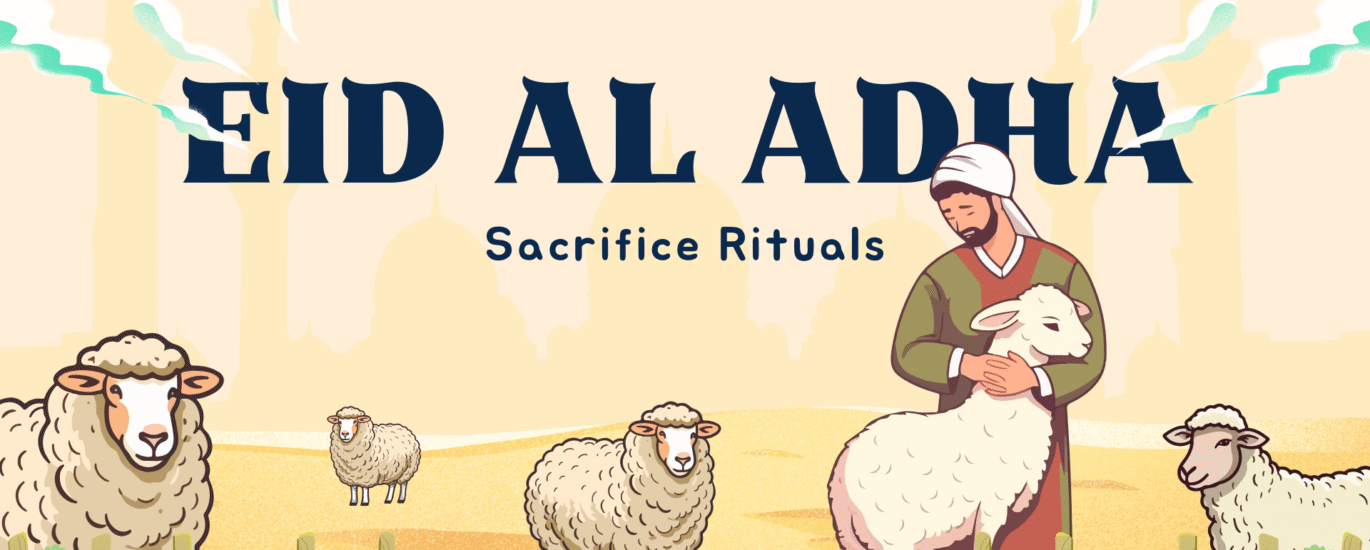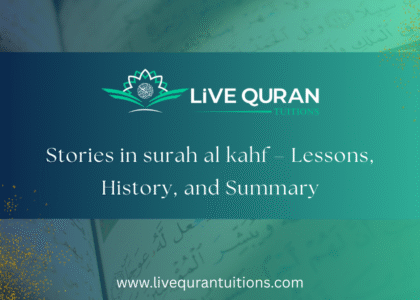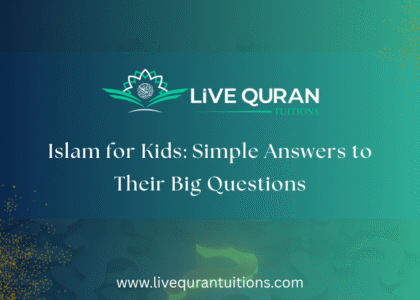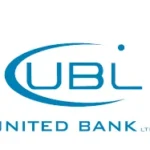As the blessed days of Dhul Hijjah approach and the anticipation for Eid Ul adha 2026 builds, Muslims around the world prepare to commemorate a profound act of faith and devotion. This joyous occasion, also known as the “Festival of Sacrifice,” is rich in symbolism and steeped in history. Join us as we delve into the heart of Eid ul Adha, exploring the significant sacrifice ritual (Qurbani), understanding the guidelines for choosing sacrificial animals, and reflecting on the timeless story of Prophet Ibrahim (peace be upon him) that forms its very foundation.
The Sacred Ritual of Qurbani: Embodying Submission and Compassion
At the core of Eid ul Adha lies the ritual of Qurbani, the sacrifice of an animal typically a sheep, goat, cow, or camel in remembrance of Prophet Ibrahim’s (AS) unwavering obedience to Allah’s command. This act is far more than just the shedding of blood; it’s a powerful demonstration of our willingness to submit to Allah’s will and to part with something we value.
Understanding the Essence of Qurbani:
- Submission: Qurbani embodies the spirit of total submission (Islam) to the Almighty. Just as Prophet Ibrahim (AS) was ready to sacrifice his beloved son, we offer this sacrifice as a testament to our faith.
- Remembrance: It’s a direct commemoration of the pivotal moment in Islamic history, reminding us of the immense trials faced by Prophet Ibrahim (AS) and the mercy of Allah.
- Compassion and Sharing: A significant aspect of Qurbani is the distribution of the sacrificed animal’s meat among family, friends, and the less fortunate. This act fosters a sense of community, empathy, and sharing Allah’s blessings. For more on the importance of charity in Islam, you can explore resources like the Zakat Foundation of America or Islamic Relief Worldwide.
Choosing Your Sacrifice: Guidelines and Considerations for Animal Selection
Islam provides specific guidelines for selecting animals for Qurbani, ensuring the ritual is performed with care and respect for the animal. Here is what you need to know:
Permissible Animals:
- Sheep (Dumba): Must be at least one year old.
- Goats: Must be at least one year old.
- Cows/Oxen: Must be at least two years old. One cow/ox can suffice for up to seven people.
- Camels: Must be at least five years old. One camel can suffice for up to seven people.
Conditions for the Animal:
The chosen animal must be healthy and free from any significant defects.
- No blindness or significant eye problems.
- No lameness that prevents walking normally.
- No severe illness.
- Not excessively thin or weak.
- Having a complete set of teeth (for age determination).
- No missing more than one-third of the ear or tail.
Treating the Animal with Kindness:
Islam emphasizes treating the sacrificial animal with utmost kindness before and during the sacrifice. You can learn more about Islamic teachings on animal welfare from organizations like the Muslim Council of Britain or reputable Islamic ethics resources.
- Providing it with food and water.
- Avoiding any unnecessary stress or harm.
- Using a sharp knife to ensure a swift and painless slaughter.
- Performing the sacrifice in a private place, away from other animals.
The Enduring Legacy: The Inspiring Story of Prophet Ibrahim (AS)
The story of Prophet Ibrahim’s (AS) willingness to sacrifice his beloved son, Prophet Ismail (AS), at Allah’s command is the cornerstone of Eid ul Adha. You can find detailed narrations of this profound event in the Quran and in the books of Hadith.
- Unwavering Obedience: Prophet Ibrahim’s (AS) complete submission to Allah’s will, even when faced with the most unimaginable trial.
- Divine Mercy: Allah’s ultimate mercy and the substitution of Prophet Ismail (AS) with a ram, demonstrating that the intention and the willingness to sacrifice are what truly matter.
- Trust in Allah: The story teaches us the importance of placing our complete trust in Allah’s wisdom and plan.
Reflecting on the Lessons:
The narrative of Prophet Ibrahim (AS) transcends time, offering valuable lessons for us today:
- Prioritizing Allah’s commands above all else.
- The power of sincere intention and unwavering faith.
- The importance of trusting in Allah’s divine wisdom, even when we don’t understand.
- The value of sacrifice, not just in a literal sense, but also in our time, wealth, and desires for the sake of Allah.
Eid ul Adha 2026: A Time for Reflection, Gratitude, and Unity
As the spirit of Eid ul Adha encourages us to connect deeply with our faith and its teachings, consider enhancing your understanding of the Quran through Live Quran Tuition. Our platform offers convenient and interactive online classes, allowing you and your family to learn the recitation, translation, and Tafsir of the Holy Quran from the comfort of your home. Deepen your knowledge of Islamic principles and strengthen your spiritual connection during this blessed time.
May Allah accept our sacrifices, forgive our shortcomings, and fill our hearts with peace and joy during Eid ul Adha 2025.














